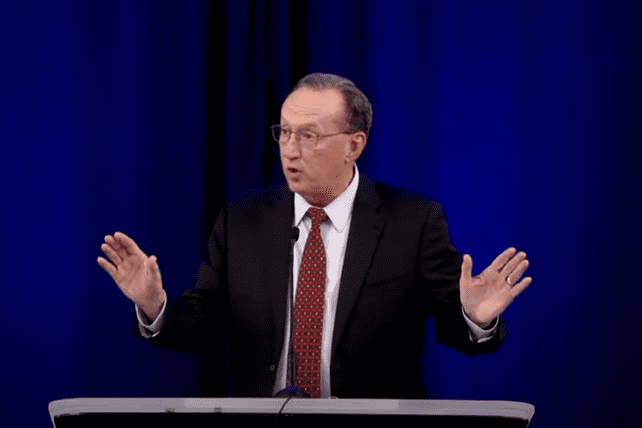On Monday (Sept. 22), Dr. Jeff Iorg urged Southern Baptists not to pick and choose which denominational entities to fund, comparing such a practice to “convincing children they can choose their own gender.”
Iorg became president of the Southern Baptist Convention’s (SBC) Executive Committee in March 2024 amid legal and financial turmoil—much of which stemmed from the denomination’s efforts to address systemic failures to prevent and report sexual abuse.
Since assuming the role, Iorg has brought a sense of stability to the Executive Committee, often praising Southern Baptists as a force for good in the world while making strategic decisions to put the denomination on firmer financial footing.
In an update to Executive Committee trustees on Monday, Iorg expressed gratitude for the “renewed confidence Southern Baptists have expressed in the Executive Committee.” He also said that through a $3 million budget allocation, the potential sale of the Executive Committee’s headquarters building to move to a smaller location, and “continued frugal operations,” the SBC is “moving toward greater financial stability for which we are all grateful.”
Iorg gave an update on the various pending legal cases involving the SBC, urging patience as the proceedings continue. He also lauded the work that has been done to implement stronger systems of abuse prevention and reporting.
Iorg did not address the status of the so-called “Ministry Check” website, which SBC delegates overwhelmingly voted in 2022 to implement as a database of Southern Baptist pastors, leaders, and volunteers who have been credibly accused of sexual abuse. Earlier this year, Iorg indicated that the Executive Committee is not likely to implement the database, saying in February, “At this point, it’s not a focus for us.”
Later in his update, Iorg addressed financial frustrations specifically related to the SBC’s Cooperative Program, which funds the denomination’s various entities.
“One of the Executive Committee’s core responsibilities is managing and distributing Cooperative Program funds to SBC entities,” said Iorg. “This is becoming more challenging because of how churches and state conventions are changing the definition of Cooperative Program giving.”
Iorg lamented that in 2025, the Executive Committee has received financial contributions in 33 different “Cooperative Program configurations,” meaning that local churches are designating funds for certain SBC entities and not others.

